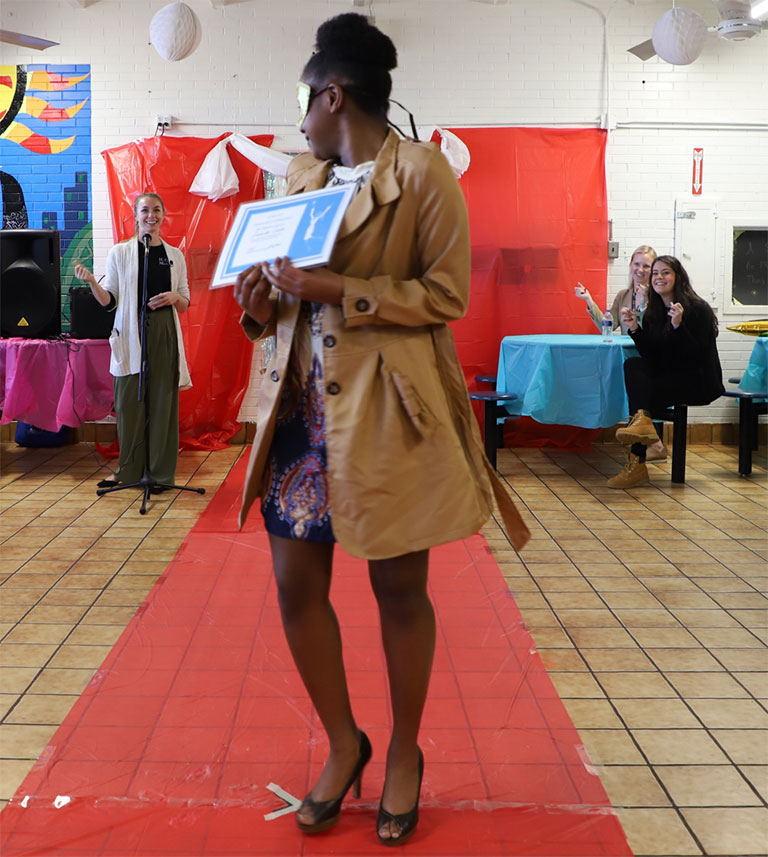“Mentoring, now more than ever, is a critical support step for the youth, and HOPE has gotten very creative in how we deliver these supports,” said Niki Weller, Associate Professor of Sociology at IU Kokomo and Co-Director of HOPE.
HOPE recently received funding from IU’s Racial Justice Research Fund, money that Ochoa said will come full circle and allow HOPE to hire the same previously incarcerated youth the organization worked with.
“The funds from the IU Racial Justice Research Fund allowed us to hire recently incarcerated youth as consultants. This is a really unique opportunity to learn from youth about what they need when they return to their community,” Weller said.
Hiring youth as consultants gives them an incredible opportunity to participate in this research as well as add some employment experience to their resume. This unique opportunity is one that HOPE will pursue even after these funds run out.
“We must create employment opportunities for youth if we want to give them a chance to learn to work. While our mentors have gained incredible insight into what these youth are experiencing, there is no better way for HOPE to learn and attend to every youth’s needs than by giving their voice a chance to be heard,” Ochoa said.
“The incarcerated youth are exceptionally isolated during this pandemic without visits from their family members or mentors, which can lead to depression and anxiety for an already at-risk population,” she added. “The overall weakened economy and diminished job availability associated with the pandemic increases the vulnerability of incarcerated youth because they are returning to a community with fewer available jobs, they are at greater risk of contracting the virus when they use public transportation, and they are returning to a community with deficient youth-focused social services.”
Among those challenges, HOPE provides unconditional and sustained support to each youth. Any are accepted, regardless of what offense led to them in incarceration. In this time of physical isolation, each youth communicates with an undergraduate student who is sending them good wishes, sharing their own struggles and anxiety about the pandemic, and is committed to helping the youth towards their employment-related goals.
“Each youth receives a weekly note of encouragement from their mentor as part of our mentoring writing campaign to ensure the youth are engaged with their mentor and to keep their focus on planning for life after release. Each youth has one person in the community ready to help him or her make the adjustment post-incarceration,” Ochoa said. “Despite the current challenges we are all experiencing, the HOPE spirit and goal of helping each youth see the potential for a new possibility has remained the same and always will.”
The Racial Justice Research funds have also helped HOPE hire two doctoral students in criminal justice who have had experiences working as a HOPE mentor and have now joined the leadership team.
HOPE is a collaborative effort between scholars, the Indiana Department of Correction, and undergraduate students from different universities in Indiana, with Ochoa acknowledging the contributions made by the leadership team in particular. The Racial Justice Research funds have allowed HOPE to pivot from in-person mentoring to online mentoring with the collaboration of the facility personnel, mentors who have continued to connect from home, and the leadership team that includes Tyeisha Fordham (IUB), Chryssa Athans (Adler University), Caroline Crouch (IUPUI), Kimberly Ingold (Ball State), Alisa Gray (Ball State), Chelsee Gamblin (IUK), and Niki Weller, Associate Professor of Sociology (IUK).


